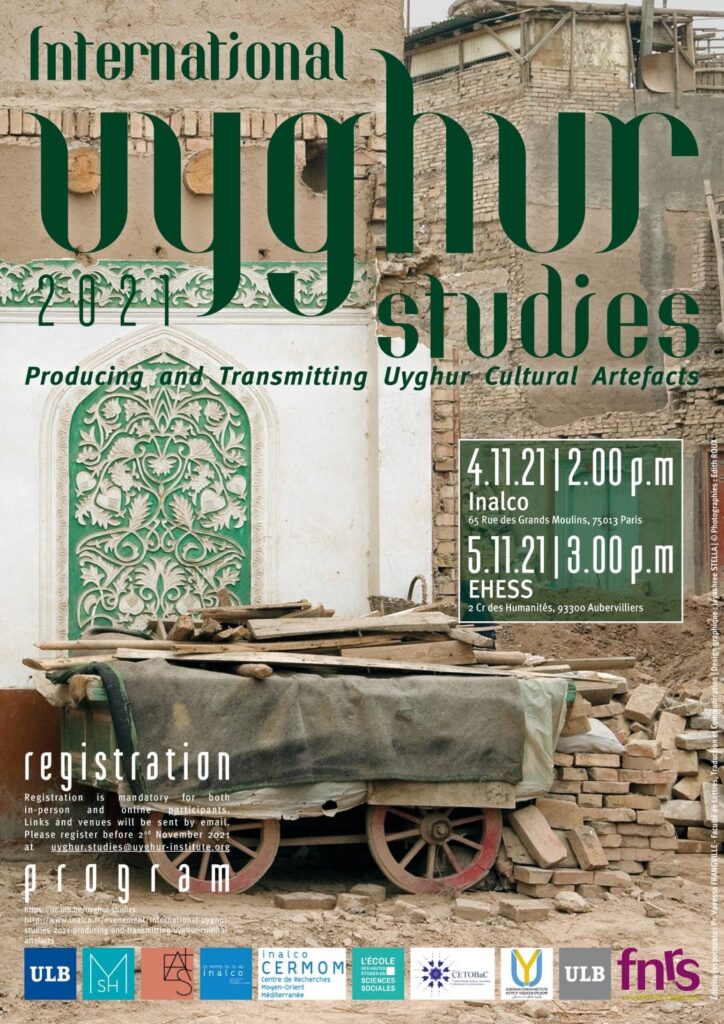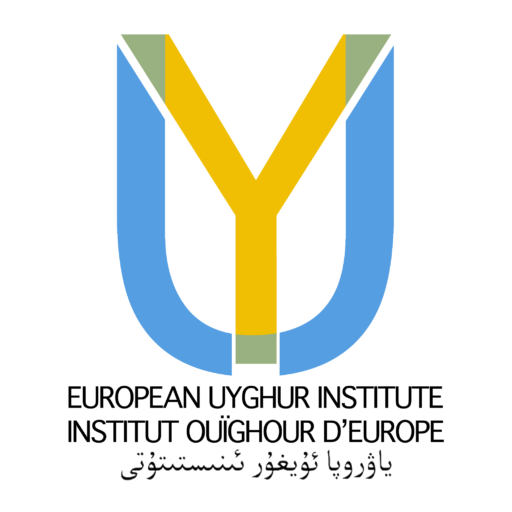This year’s annual conference, “Producing and Transmitting Uyghur Cultural Artifacts”, was held in Paris on 4 and 5 November 2021, at the Institut national des langues et civilisations orientales (Inalco) and the Ecole des hautes études en sciences sociales (EHESS).
This conference brought together academics, teachers, translators and artists to discuss the teaching of Uyghur language, literature and history as well as the contemporary cultural productions of Uyghur society. It was jointly organised by the European Uyghur Institute (IODE) and the research centres CERMOM (Inalco), CETOBaC (EHESS) and EASt (Université libre de Bruxelles-ULB).

Our approach in organising this conference was to interrogate the growing field of “Uyghur studies” and to encourage collaborative work across time, specialisation and disciplinary boundaries. We also wanted to open the event to participants who contribute to the production of Uyghur culture and translation of Uyghur language materials outside of academic institutions.
The central questions of the conference were:
- How should Uyghur studies be defined?
- What are the challenges of producing and transmitting Uyghur cultural artefacts?
- How does the growth of scholarly literature based on Uyghur sources affect our conceptions (valid or erroneous) of the history of the region, its people, their language, cultural practices and society?
- What are the different perspectives presented by contemporary Uyghur artists, filmmakers, writers, musicians and poets on what is happening in their country?
Opening this conference to speakers from outside the academic world allowed us to hear very relevant interventions from people like Muyesser Abdul’ehed Hendan, a poet, writer and teacher of Uyghur. She is the founder of the Ayhan Education association, which aims to promote the learning of the Uyghur language in the diaspora. We were also able to watch a short film by a Uyghur director, and we were then able to engage in a collective discussion with him.
Among the speakers from the academic world, we had the chance to exchange with people whose names will be familiar to all those engaging with the emerging field of Uyghur studies. These people included, for example, Eric Schluessel, Sam Tynen, Jo Smith Finley, Nimrod Baranovitch, Timothy Grose, Joshua Freeman, and Mukkadas Mijit. Darren Byler helped us project ourselves towards our next conference, scheduled for autumn 2022, which will focus on colonialism, with his presentation “Creating Uyghur Futures: Fiction and Memoir as Decolonial Method”. We also had the pleasure of meeting a young Uyghur doctoral student, and of having two colleagues from Turkish and Central Asian Studies, Alexandre Toumarkine and Stéphane Dudoignon, speak.
We invite all those interested to consult the full programme here. See you next year in Geneva for International Uyghur Studies 2022, which will be a conference dedicated to history and will focus on the question of colonialism and colonial relations in the Uyghur region, from the Qing conquest to the annexation of the region by the People’s Liberation Army (PLA) in 1949.
